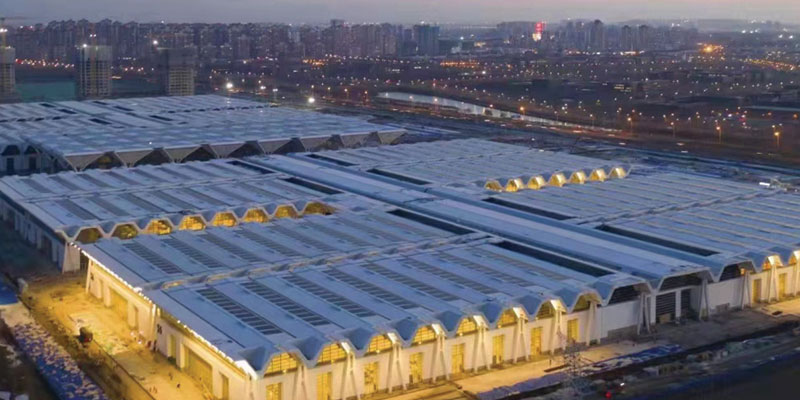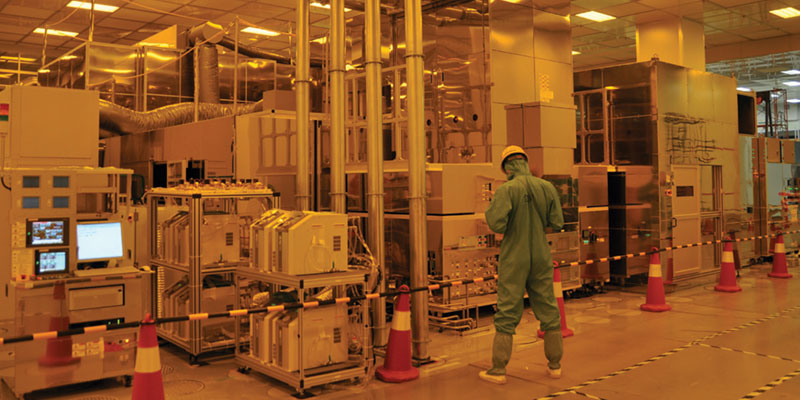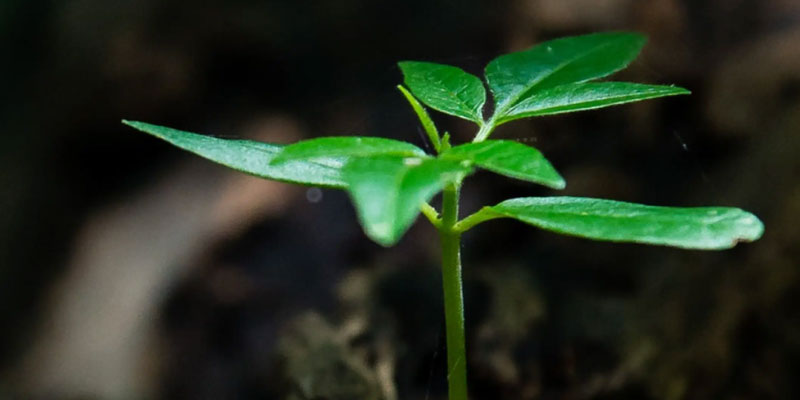Making greener electronics
From design to recycling, manufacturers like TCL are adhering to a more sustainable approach to help lower the environmental impact
Custom content is written, produced or curated by either a sponsor or by EI Studios, the custom division of Economist Impact. Such placements are clearly labelled as Advertisement, Advertisement feature, Sponsored content, Sponsor perspective, or words to that effect wherever they appear on our website or apps. Neither The Economist news and editorial team, nor Economist Impact's independent experts, have any involvement in the creation of this content.
Making greener electronics
From design to recycling, manufacturers like TCL are adhering to a more sustainable approach to help lower the environmental impact
Would you like an evening of time travel tonight? Psychologists today believe our favourite devices offer a perfect form of sanctioned escapism from the challenges of everyday life. Yet what we sadly can’t escape is the fact that for many of us, our daily journey of the imagination could also be doing undue harm to the planet.
Experts say that even in the best of cases, less than 40 percent of today’s electronics globally are recycled each year. The World Economic Forum predicts that if left unchecked, the planet will produce 75 million metric tonnes of e-waste by 2030.
One initial answer to this problem lies in buying better equipment and keeping it longer. Keeping a TV for 13 years rather than six, for instance, could save the planet around 660 kilograms of greenhouse gas.
Indeed, not only does e-waste appearing in our landfills represent a loss of precious materials that could be recycled, it also threatens to release harmful chemicals into our soils and waterways. While the pathway is challenging, only through manufacturers embracing a circular economy can we hope to plot a more sustainable, recycle and repair culture. As laws in developed countries move consumers in this direction, the focus increasingly turns to the manufacturer.


As Accenture notes in a recent report on recycling in the car industry, while there is tangible value to be gained for companies in embracing circularity, it takes a mindset and cultural shift to get there. In the report foreword, it states that: “It requires a life cycle optimisation approach considering the cost and revenue benefits of circularity.”
As a brand spread across 32 manufacturing bases globally and operating in over 160 countries, a growing market share creates added pressure to address your environmental footprint. Thankfully, since 2014, TCL has doubled its recycling commitments year-on-year.
One such manufacturer actively attempting such a shift is electronics leader TCL, which has made the recycling of electronic waste a tangible part of its global corporate social responsibility (CSR) efforts. Best known in the public space as a producer of television sets, TCL specialises in the research, development and manufacturing of consumer electronics including TVs, mobile phones, audio devices and smart home products.
As a brand spread across 32 manufacturing bases globally and operating in over 160 countries, a growing market share creates added pressure to address your environmental footprint. Thankfully, since 2014, TCL has doubled its recycling commitments year-on-year.
From 2019 data of the US market, it recycles one TCL television every 10 seconds—or almost 23m kilograms of electronic materials. This has meant working with the Environmental Protection Agency (EPA) to advance awardwinning recycling and education programmes. Cynthia Mendoza, sustainability programme manager for TCL, says the company wants to help make recycling accessible. “We want to show our communities that not only is recycling necessary, but it’s also really convenient and easy.”
For many consumers, trust is a major stumbling block when it comes to conscience-based buying. As Deloitte found in a recent UK survey, almost one in two either don’t know the commitments businesses have made, or simply do not trust businesses on sustainability issues.

Trust and education are major drivers behind the Eco Rating labelling scheme, created and launched by five of Europe’s leading mobile operators. The stringent eco-rating evaluation system integrates user requirements, expectations and European regulations from the sourcing of raw and packaging materials, manufacturing, and the recyclability of these elements, to promote a circular economy for its products.
Wary consumers should look to independent awards for validation of commitment. During the global pandemic, for instance, the EPA awarded TCL with a Special Sustainability Leadership Award, commending the brand for its efforts to keep free electronics recycling available to local communities; even during the outbreak of covid-19 in 2020.
Ultimately, doing better for the planet means committing to make products in better ways. As McKinsey rightly points out, “up to four-fifths of a product’s lifetime emissions are determined by decisions made at the design stage”.
For the past six years for instance, TCL has also been assessed by leading business sustainability ratings service EcoVadis, on commitments including Environmental and Ethics and Sustainable Procurement impacts. In 2020, TCL’s overall score helped it gain the EcoVadis Silver Award, which it received in 2021 and 2022.

Of course, no company can ever claim to be perfect. Yet what consumers want to see is hard work. And indeed, as the World Economic Forum points out, efforts toward more sustainable systems can also equate to a more peaceful world.
In TCL’s case, this hard work is intended to become baked into the brand’s DNA, as part of its broad range of efforts within host communities. This includes conducting energy saving and emission-reduction projects towards advancing its commitment to the United Nation’s Sustainable Development Goals. Case in point: its TCL CSOT G11 panel project has obtained one of the highest international standards in green buildings, the LEED Platinum rating.
The company is determined that innovation must not be limited to what hits the product shelves—it must also start at the factory floor. One such initiative seeks to further lower its energy usage during production. “TCL is carrying out a reconversion based on intelligent manufacturing, industrial internet and digitalisation, which can result in more efficient energy-saving methods throughout the production process,” explains chairman and CEO of TCL, Li Dongsheng. “TCLGreen is our brand value. We have adhered to it from green factories and green products to green value chains.”
Produced by EI Studios, the custom division of Economist Impact
The #TCLGreen campaign is a global initiative by TCL to inspire greatness and create a greener planet for all. TCL aims to embrace the path of sustainable development with innovative technology and clean energy solutions.